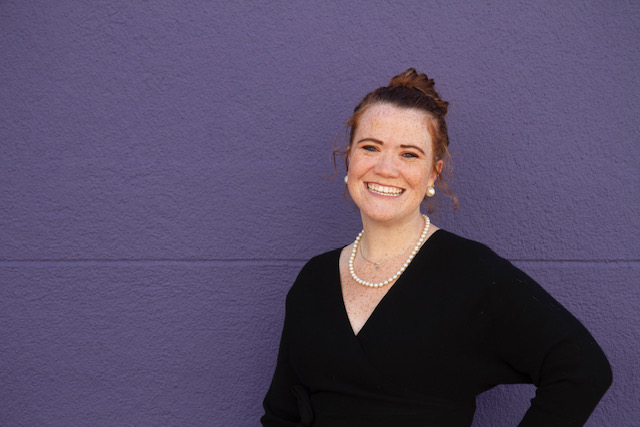Outpatient Therapy
What is Outpatient Therapy?
Outpatient therapy is a form of mental health treatment that can be performed alongside a youth’s daily life and schedule while living at home.
The Journey: How Embark in Cabin John Helped Nora Heal
What To Know About Outpatient Therapy
Age Range Served
adolescents, teens, and young adults ages 12-28Genders Served
male, female, non-binary, LGBTQ+Treated
mental health and substance use issuesAverage Length of Treatment
3 months to 1 yearTherapy Time Commitment
1-5 hours a day, 4-6 days a weekProgram Types
How Will Outpatient Therapy Help?
Adolescents, teens, and young adults in our outpatient programs have seen a:
0%
Decrease in Anxiety0%
Decrease in Depression0%
Decrease in Distress0%
Increase in Well BeingWhat's a Day at an Outpatient Clinic Like?
Where Are Your Outpatient Programs?
Our outpatient treatment centers provide the perfect setting for healing and nurturing mental health treatment in your local neighborhood.
What Are the Details of Outpatient Therapy?

Our Outpatient Mental Health Services
Our outpatient therapy programs include:
- Intensive outpatient program (IOP)
- Therapeutic day treatment program/partial hospitalization program (PHP)
- Group therapy
- Family therapy
- Individual therapy
- Parent coaching
- Peer mentoring
- Dialectical behavior therapy skills (DBT)
- Parent support groups
- Case management
- Executive functioning support
- Trauma-Informed yoga

Conditions Our Outpatient Programs Treat
 Therapies Offered
Therapies Offered
- Dialectical behavior therapy (DBT)
- Experiential therapy
- Trauma-Focused Cognitive Behavioral Therapy
- Attachment-focused therapy
- Art Therapy
- Transcranial magnetic stimulation (TMS)
- Family systems therapy
- Multicultural therapy
- Eye movement desensitization and reprocessing (EMDR)
- Emotionally focused
- Mindfulness-Based (MBCT)
- Motivational interviewing
- Parent-Child interaction (PCIT)
- Person centered
- Positive psychology
- Psychological testing and evaluation
- Strength-Based
- Structural family therapy
- Trauma informed care (TIC)

Our Outpatient Mental Health Services
Our outpatient therapy programs include:
- Intensive outpatient program (IOP)
- Therapeutic day treatment program/partial hospitalization program (PHP)
- Group therapy
- Family therapy
- Individual therapy
- Parent coaching
- Peer mentoring
- Dialectical behavior therapy skills (DBT)
- Parent support groups
- Case management
- Executive functioning support
- Trauma-Informed yoga

Conditions Our Outpatient Programs Treat
 Therapies Offered
Therapies Offered
- Dialectical behavior therapy (DBT)
- Experiential therapy
- Trauma-Focused Cognitive Behavioral Therapy
- Attachment-focused therapy
- Art Therapy
- Transcranial magnetic stimulation (TMS)
- Family systems therapy
- Multicultural therapy
- Eye movement desensitization and reprocessing (EMDR)
- Emotionally focused
- Mindfulness-Based (MBCT)
- Motivational interviewing
- Parent-Child interaction (PCIT)
- Person centered
- Positive psychology
- Psychological testing and evaluation
- Strength-Based
- Structural family therapy
- Trauma informed care (TIC)
When is Outpatient Treatment Necessary?
- When adolescents, teens, or young adults require less intensive care and can manage their symptoms while still living at home.
- When a young person has a strong support system in place and can benefit from therapy sessions that accommodate their school or work commitments.
- When the cost of inpatient treatment is not feasible, outpatient therapy may offer more payment and insurance options.
- When adolescents, teens, or young adults want to maintain their daily routine and responsibilities while receiving treatment.
- When transitioning down a level of care from inpatient treatment.

What If Outpatient Treatment Isn't the Right Fit?
If our outpatient mental health services don’t sound like the right fit for your son or daughter, Embark offers a variety of treatment options including residential treatment, transitional living programs, and therapeutic boarding schools throughout the United States.
What Our Clients Say About Us!
FAQs
Can a virtual IOP be covered by insurance?
How long does outpatient treatment last?
What is the goal of outpatient therapy?
What are the benefits of outpatient treatment?
How long are outpatient visits?
How soon can my adolescent, teen, or young adult start outpatient treatment?
Who can benefit from outpatient treatment?
What is an example of a day at outpatient treatment?
How do I understand the cost associated with treatment?
How do I know what type of treatment is right for my child?
How do I receive information about your program?
Outpatient vs. Inpatient Therapy
Still Wondering if Outpatient Treatment is Right for Your Child?
Give our team a call and we’ll help you figure out if outpatient treatment is right for your adolescent, teen, or young adult.























